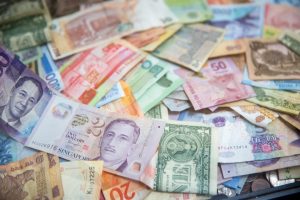Forex trading is a popular way for individuals and businesses to invest and make money in the foreign exchange market. The forex market is open 24 hours a day, five days a week, allowing traders from all over the world to participate in trading at any time of the day or night. However, forex sessions do have specific start times that traders should be aware of.
Forex sessions refer to the time periods during which the forex market is open for trading. There are three primary forex sessions: the Asian session, the European session, and the North American session. Each session is associated with specific trading hours, with some overlap between the sessions. The start times for these sessions vary depending on the time zone and daylight saving time (DST) of the country in which the forex market is based.
The Asian session is the first forex session to open, and it begins at 7:00 PM EST on Sunday evening. This session is primarily focused on trading in the Japanese yen, as Japan is a major player in the forex market. Other currencies that are commonly traded during the Asian session include the Australian dollar, New Zealand dollar, and the Chinese yuan.
The European session begins at 2:00 AM EST, and it is the most active session in terms of trading volume. This session is dominated by trading in the euro, as well as the British pound and the Swiss franc. The European session is also when economic news and data releases from the European Union are typically announced, which can cause significant fluctuations in currency prices.
The North American session is the final forex session to open, and it begins at 8:00 AM EST. This session is characterized by trading in the US dollar and the Canadian dollar, as well as other currencies that are heavily influenced by the US economy, such as the Mexican peso. The North American session is also when economic news and data releases from the United States are typically announced, making it an important session for traders to pay attention to.
It is important to note that the start times for forex sessions can vary depending on the time zone and DST of the country in which the forex market is based. For example, during the summer months in the United States, the start times for the Asian and European sessions may be one hour earlier due to DST.
In addition to the three primary forex sessions, there is also a fourth session known as the Pacific session. This session is sometimes referred to as the “after-hours” session, as it occurs outside of the regular trading hours for the other three sessions. The Pacific session begins at 5:00 PM EST and ends at 2:00 AM EST. This session is primarily focused on trading in the Australian dollar and the New Zealand dollar, as well as other currencies in the Asia-Pacific region.
Traders should be aware of the start times for each forex session, as this can impact their trading strategies and decisions. For example, traders who are interested in trading the Japanese yen may want to focus their attention on the Asian session, while those who are interested in trading the euro may want to focus on the European session.
In addition to the start times for forex sessions, traders should also be aware of any holidays or market closures that may impact trading. For example, major holidays in the United States, Europe, and Asia can cause reduced trading volume and increased volatility in the forex market.
In conclusion, the forex market is open 24 hours a day, five days a week, with three primary trading sessions: the Asian session, the European session, and the North American session. Traders should be aware of the start times for each session, as well as any holidays or market closures that may impact trading. By staying informed and aware of the trading hours and other factors that can impact the forex market, traders can make more informed decisions and potentially increase their profits.





